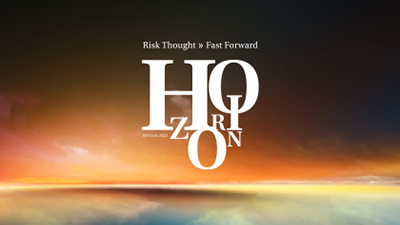At the beginning of the last quarter of 2022 some economic forecasts stated that the energy crisis, inflation, higher interest rates and the outlook for a recession could significantly boost the number of business bankruptcies.
Especially in these economically and politically challenging times, trade credit insurance is more than just an insurance. It is an important credit risk management tool for monitoring existing and future business partners` creditworthiness, their payment behaviour and for obtaining the detailed information companies need on business partners to help them making the “right credit decision”.
In line with its specialisation strategy, GrECo focuses on the individual needs of different industries and provides clients with tailor-made trade credit solutions as well as a unique team of specialists, mainly based in Austria, Slovenia, Romania and Bulgaria. The partnership with km credit consulting team, additionally provides the GrECo Group with significant benefits for its international clientele.
The ugly face of war
The rapid recovery of the global economy in 2021 resulted in quite optimistic forecasts for 2022 – until 24th February2022. Russia’s invasion of Ukraine, followed by EU and US sanctions significantly darkened the global economic outlook for 2022 at an early stage.
The war in Ukraine is not only a humanitarian catastrophe and a threat to Europe’s security, but also an economic disaster. Considering Europe`s energy dependency on Russia, the immediate impact on energy markets and the financial sector quickly became apparent.
Reaction of the Trade Credit Insurers – the risk action
In light of these economic and political developments and an unforeseeable future, the trade credit insurance market reacted quickly: no new or additional export credit limits for buyers in Russia, in Ukraine and in Belarus.
As the situation in Ukraine and Russia did not improve in 2022, further restrictions were expected, not only for the export business. The complexity of the imposed sanctions and the effect on trade flows posed an increased risk for both, the companies and the trade credit insurers. For the time being, the financial data of Russian companies are not to be disclosed due to an order by the Central Bank of Russia in addition. Credit assessment and monitoring a buyer`s creditworthiness is however the core business of any credit insurance. Given the current business climate, it was inevitable that insurers would pull out from Russian credit limits at the end of 2022.
“Inflation Blues” and the need for higher credit limits
One of the economic consequences of the pandemic was a disruption of global supply chains. Lifting the Covid restrictions lead to an exceptional surge in demand. At the same time, bottlenecks kept supply down. Due to that vulnerable business environment, the inflation initially began its rally in 2021.
To support the economic upswing, credit insurers were required to upgrade certain industry sectors and increase the coverage for many companies in line with increased prices.
The war in Ukraine fuelled inflation in 2022. The sanctions imposed on Russia, oil and gas, wheat as well as certain global commodities resulted in high price volatility, which, in turn, was often driven by the fear of possible supply shortages. Dealing with already very high inflation, high energy prices are still one of the most important factors to monitor for the global trade.
Europe`s energy dependency on Russian oil and gas highlighted the need for investment in green infrastructure projects to enhance resilience and help reduce the carbon footprint.
In its effort to fight inflation, the ECB initiated a turnaround by raising key interest rates for the first time in July 2022 by 0.5 percentage points. In various increases until December 2022 the overall hikes amounted to 2.5%. The key driver was the record inflation of 10.4% in October 2022, which remained at an equally high level in November and December 2022.
Thus, Trade Credit Insurers have been focussing on those companies which do not have the risk-bearing capacity to cope with multiple risks at the same time, including supply chain disruptions and transportation bottlenecks, higher costs of energy, raw materials and financing, etc. as indirect consequences of the global inflation surge in the uncertain economic environment.
Insolvencies on the rise, but do not panic!
At the beginning of the last quarter of 2022 some economic forecasts stated that the energy crisis, inflation, higher interest rates and the outlook for a recession could significantly boost the number of business bankruptcies.
Some countries have therefore resumed temporary government support measures. Let`s hope that government support will be better targeted and limited this time. It could, however, also result in a delay of corporate bankruptcies, especially in some European countries.
Global business insolvencies were expected to increase by +10% in 2022 and +19% in 2023, similar to pre-Covid levels. These statements were made with the current economic challenges in mind.
Related Insights
More Than Just an Insurance: Credit Insurance in Uncertain Times
At the beginning of the last quarter of 2022 some economic forecasts stated that the energy crisis, inflation, higher interest rates and the outlook for a recession could significantly boost the number of business bankruptcies.
Natural Gas Seems to Be the New Gold: Interview With Michael Kolb
Michael Kolb, Board Member at Acredia, talks about the political effects of the energy crisis and situation of the former Yugoslavian countries.
Disrupted supply chains and their consequences
Since the outbreak of the Corona pandemic two years ago, disrupted supply chains have threatened the existence of many companies.









